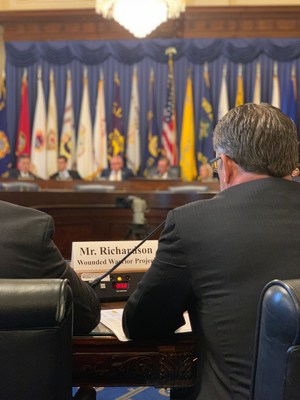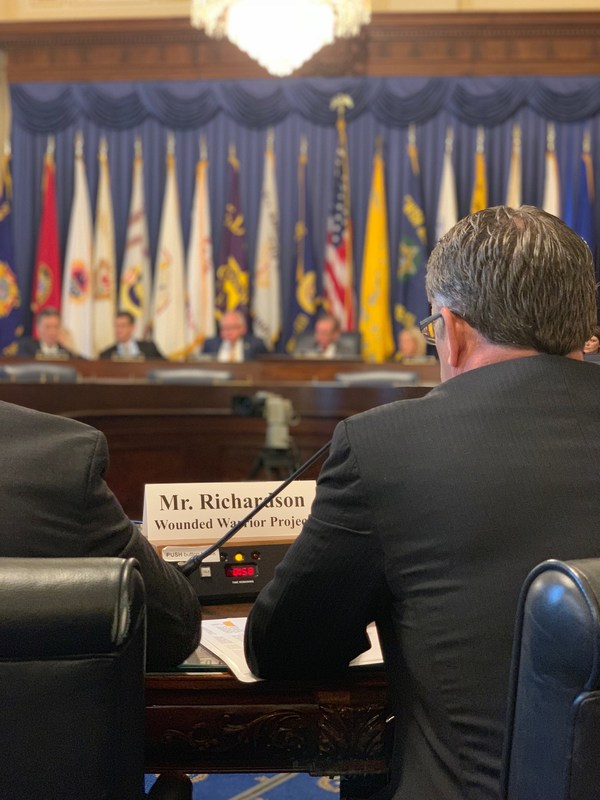Wounded Warrior Project Advises Congress on Suicide Prevention Best Practices
WASHINGTON, Sept. 28, 2018 /PRNewswire/ -- Wounded Warrior Project® (WWP) testified before the House Committee on Veterans Affairs as part of its ongoing suicide prevention advocacy efforts with our nation's leaders. Mike Richardson, WWP independence services and mental health vice president, described the need for innovative thinking on how to approach the unique mental health challenges many wounded veterans face upon returning to civilian life.

"Mental health treatment works," Richardson said. "And it is our belief that suicide prevention must move beyond the healthcare and crisis management model toward an integrated and comprehensive public health approach focused on resilience and prevention. We need a multi-pronged approach to prevention and treatment – a combination of clinical, non-clinical, and peer-to-peer community-focused efforts. Suicide prevention cannot just be about saving someone's life when they are in crisis; it must be about creating a life worth living."
During Richardson's testimony with the committee, he shared details about WWP programs that have been successful in helping injured warriors adapt to life with mental health conditions like post-traumatic stress, depression, and anxiety.
The first is Warrior Care Network®, a partnership with WWP and four national academic medical centers: Massachusetts General Hospital, Emory Healthcare, Rush University Medical Center, and UCLA Health. Warrior Care Network delivers specialized clinical services through innovative two- to three-week intensive outpatient programs that integrate evidence-based psychological and pharmacological treatments, rehabilitative medicine, wellness, nutrition, mindfulness training, and family support with the goal of helping warriors thrive, not just survive.
The second is Project Odyssey®, a 90-day program consisting of a multi-day mental health workshop that helps warriors find resiliency in their transitions from military to civilian life. Warriors learn how to accept and process emotions to build resiliency instead of avoidance and control techniques.
"We strongly feel that peer-to-peer engagement is critical," Richardson said. "In addition to our own connection programs, we partner with many other peer-to-peer organizations like Team Red White and Blue, The Mission Continues, Team Rubicon, as well as the Bush Institute's Warrior Wellness Alliance, whose focus is on optimizing the efforts across the veteran space to help foster the resilience of veterans and prevent suicides."
To read more, visit: https://newsroom.woundedwarriorproject.org/highlights?item=31027.
About Wounded Warrior Project
Since 2003, Wounded Warrior Project® (WWP) has been meeting the growing needs of warriors, their families, and caregivers – helping them achieve their highest ambition. Learn more: http://newsroom.woundedwarriorproject.org/about-us.
SOURCE Wounded Warrior Project

